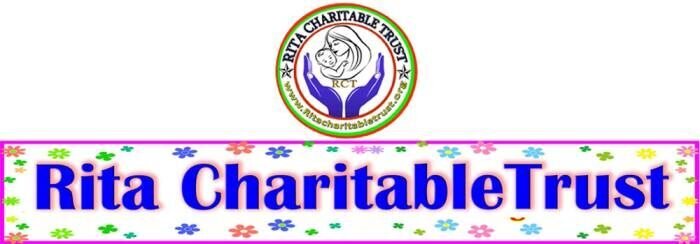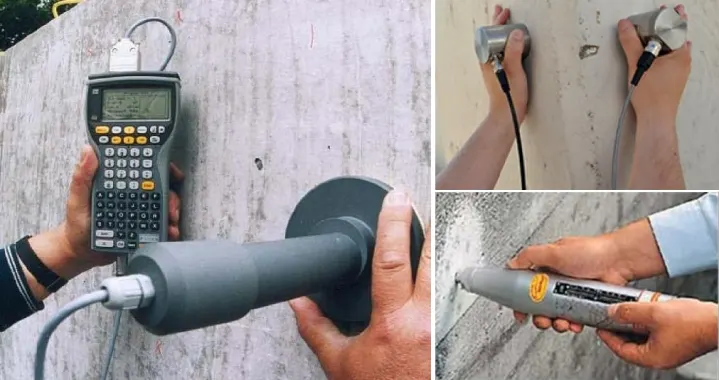Chargehand – Piling (6 month course)
Chargehand – Piling click here
Brief Job Description: The job role is responsible for overseeing pile boring and related
activities for cast in-situ bore piles; carrying out soil boring by operating winch machine;
and carrying out arc welding in reinforcement steel cages for length extension at
construction sites. The individual should possess good factual knowledge, and shall be
able to maintain safe and quality work practices.
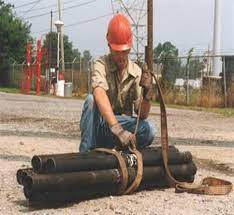
Personal Attributes: The individual is expected to be physically fit and should be able to
work across various locations especially in marshy/ muddy locations. The individual
should be organized, diligent, methodical, demonstrative and able to implement and
maintain safety practices. The job role should have independent ability to take quick
decisions and should be well versed in rigging works. The individual should possess good
organizational, interpersonal and communication skills along with factual knowledge of
rigging works and shall also be responsible for own work and learning.
Description
Sector Sector is conglomeration of different business operations having similar
business and interests. It may also be defined as a distinct subset of the
economy whose components share similar characteristics and interests.
Sub‐Sector Sub‐Sector is derived from a further breakdown based on the characteristics
and interests of its components
Occupation Occupation is a set of job roles, which perform similar/related set of
functions in an industry
Job role Job role defines a unique set of functions that together form a unique
employment opportunity in an organization.
Occupational Standards
(OS)
OS specify the standards of performance an individual must achieve when
carrying out a function in the workplace, together with the knowledge and
understanding they need to meet the standard consistently. Occupational
Standards are applicable both in the Indian contexts.
Performance Criteria Performance Criteria are statements that together specify the standard of
performance required when carrying out a task.
Qualifications Pack (QP) Qualifications Pack comprises the set of OS, together with the educational,
training and other criteria required to perform a job role. A Qualification Pack
is assigned a unique qualification pack code
Qualification Pack Code Qualification Pack Code is a unique reference code that identifies a
qualifications pack.
National Occupational
Standards (NOS) NOS are Occupational Standards which apply uniquely in the Indian context.
Scope Scope is the set of statements specifying the range of variables that an
individual may have to deal with in carrying out the function which have a
critical impact on the quality of performance required.
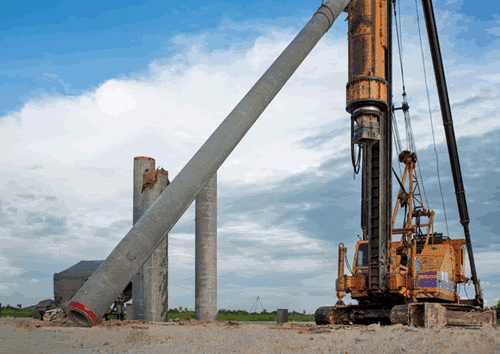
Knowledge and Understanding
Knowledge and Understanding are statements which together specify the
technical, generic, professional and organizational specific knowledge that an
individual needs in order to perform to the required standard
Organizational Context Organizational Context includes the way the organization is structured and
how it operates, including the extent of operative knowledge managers have
of their relevant areas of responsibility.
Technical Knowledge Technical Knowledge is the specific knowledge needed to accomplish specific
designated responsibilities.
Core Skills / Generic Skills Core Skills or Generic Skills are a group of skills that are key to learning and
working in today’s world. These skills are typically needed in any work
environment. In the context of the OS, these include communication related
skills that are applicable to most job roles.
Keywords /Terms Description
CON Construction
NSQF National Skill Qualifications Framework
QP Qualification Pack
OS Occupational Standards
TBD To Be Decided
Oversee preparatory works for conventional RCC pile boring operation
Description This unit describes the skills and knowledge required to oversee preparatory works
for conventional RCC pile boring operation.
Scope The scope covers the following:
Check and ensure erection of piling tripods and related equipments
Oversee excavation of tanks/ pits and installation of pumps used for piling
operation
Performance Criteria (PC) w.r.t. the Scope
Element Performance Criteria Check and ensure erection of piling tripods and related equipments
To be competent, the user/individual on the job must be able to:
PC1. check and ensure safe working condition of rigging gears, tools, components
and materials required to erect piling tripod
PC2. oversee shifting of rigging gears, components and ensure their proper
stacking at specified locations
PC3. confirm centre point of boring location by carrying out necessary
measurements from reference points
PC4. oversee assembling and erection of piling tripods at the specified location
and recheck the measurements to confirm its exact location
PC5. check rigging gears installed to the tripod for their adequate locking
PC6. shift and place winch to the specified location as per agreed work plan
PC7. conduct checks on wire rope attached to the winch and tripod for its safe
working condition and lubrication
PC8. check locking of boring chisel to the pulling cable and repair if any deviation
observed
Oversee excavation of tanks/ pits and installation of pumps used for piling operation
PC9. confirm the layout of excavation for storage tank/pit as per agreed work plan
PC10. conduct excavation of tanks/ pits at specified locations as per agreed work plan or instructions
PC11. ensure excavated pit dimension and slope are as per work plan
PC12. ensure proper slope is provided in excavation
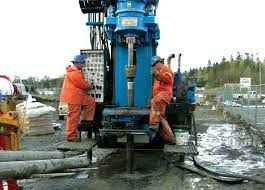
PC13. check and ensure desired functioning of pumps used for piling operation
PC14. conduct installation of pumps at specified locations as per instruction or
agreed work plan
PC15. oversee laying and connection of hose and ensure its water tightness
PC16. confirm electrification of pumps from specified electrical outlets
PC17. carry out trial run of pumps and ensure uninterrupted discharge at specified
location
PC18. ensure erection of barrication, safety signage surrounding the excavated pit
PC19. use PPEs applicable to the construction sites and ensure implementation of
safety practices by subordinates at workplace
Knowledge and Understanding (K)
A. Organizational Context (Knowledge of the company / organization and its processes)
The user/individual on the job needs to know and understand:
KA1. standard procedures for rigging work
KA2. safety rules and regulations for handling and storing relevant tools and equipment and materials for rigging works
KA3. personal protection including the use of the related safety gears and equipment
KA4. precautions and measures required in the lifting and movement of heavy
components and materials
KA5. service request procedures for tools, materials and equipment’s
KA6. statutory compliance requirements related to working at height
B. Technical Knowledge
The user/individual on the job needs to know and understand:
KB1. basic sketches / schematic working drawing relevant to rigging works
KB2. basic principles of measurement, geometry and arithmetic calculation
KB3. linear, areal and cubic measurements with conversion of units (length and weight)
KB4. units of measurements
KB5. sequence of tripod erection in piling operation
KB6. rigging gears to be used at piling work and their safe working loads
KB7. sequence and standard practice of storing of piling material components as per their functional use
KB8. reference points provided by surveyor and their implication in pile construction
KB9. method of erection of piling tripods using its different components
KB10.selection and use of rigging gears in piling tripods and their maintenance during and post completion of work
KB11. checks to be carried out at different rigging gears to ascertain their usability
KB12.brief about agreed work plan and logistic plan
KB13.standard procedure of excavation and checks to be carried out to ensure the acceptability of the same
KB14. capacity and types of pups used for piling works
KB15. correct method of setting up pumps and its accessories as per work plan
KB16.basic checks to be carried out to pumps detect faults/ cause of malfunctioning and their repairing
KB17.specification of pumps to be used for fluid discharge required for piling operation
KB18.electrical connection required for pumps and electrical safety norms to be
followed during working with pumps
KB19. calculation related to arithmetic, geometry and their applications in work
Skills (S)
A. Core Skills/
Generic Skills
Writing Skills
The user/ individual on the job needs to know and understand how to:
SA1. write in one or more language, preferably in the local language of the site
and basic English
SA2. provide clear and simple instructions, details & sketches to sub‐ordinate
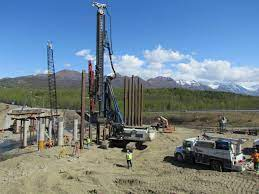
Reading Skills
The user/ individual on the job needs to know and understand how to:
SA3. read one or more language, preferably in the local language of the site and
basic English
SA4. read sketches, drawing or instructions provided for the rigging work
SA5. read various, sign boards, safety rules and safety tags , instructions related
to exit routes during emergency at the workplace
Oral Communication (Listening and Speaking skills)
The user/ individual on the job needs to know and understand how to:
SA6. speak one or more language, preferably in the local language of the site
SA7. orally and effectively communicate about sketches, drawing or instructions
provided for the rigging work
SA8. speak and convey about various, sign boards, safety rules and safety tags
instructions related to exit routes during emergency at the workplace
B. Professional
Skills
Decision Making
The user/individual on the job needs to know and understand how to:
SB1. decide whether the work place is safe for working and also relevant task is
not creating hazardous condition for others
SB2. decide on manpower, tools , material and equipment for relevant work
SB3. decide whether the rigging gears are installed and positioned correctly
SB4. determine and finalize center point of boring location
Plan and Organize
The user/individual on the job needs to know and understand how to:
SB5. plan work & organize required resource in coordination with team members
and superior
Customer centricity
The user/individual on the job needs to know and understand how to:
SB6. perform work as per agreed time schedule and quality
Problem solving
The user/individual on the job needs to know and understand how to:
SB7. resolve concerns raised by the rigging gang
SB8. resolve any conflict within the team
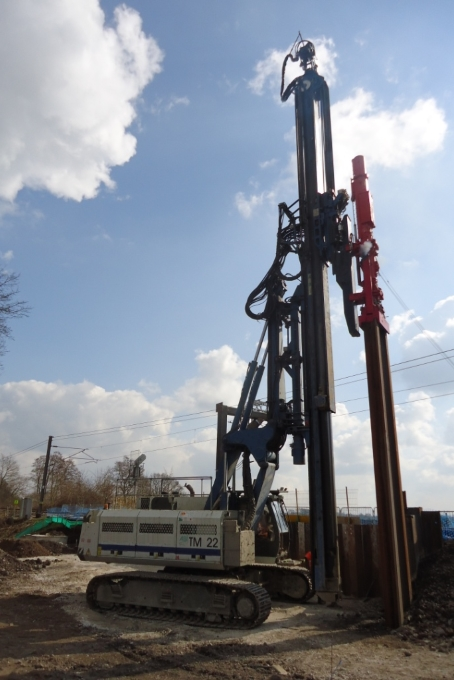
Analytical Thinking
The user/individual on the job needs to know and understand how to:
SB9. correlate the sequence of rigging works with respect to other
proceeding activity of other trade
SB10. optimize resources
SB11. minimize wastages
Critical Thinking
The user/individual on the job needs to know and understand how to:
SB12. evaluate the complexity of the task and seek assistance and support
wherever required
SB13. identify violation of any safety norms which may lead to accidents
Carry out pile boring using winch machine
Description This unit describes the skills and knowledge required to carry out pile boring using
winch machine.
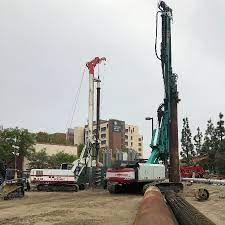
Scope The scope covers the following:
Operate winch machine and carry out boring by chisel
Performance Criteria (PC) w.r.t. the Scope
Element Performance Criteria
Operate winch machine and carry out boring by chisel
To be competent, the user/individual on the job must be able to:
PC1. check electrical connection lines provided for their safe condition and report
to superior if found otherwise
PC2. check drum, rope, limit switch and locking of winch with its base prior to
start lifting
PC3. anchor winch with counter weights if required and ensure that no skidding
of the equipment
PC4. lift load using winch and release the same as per signal provided from the
concerned personnel
PC5. control speed of lifting and lowering load while operating winch safely as per
standard practice
PC6. carry out initial boring up to specified depth
PC7. ensure appropriate placing and orientation of temporary guide casing in the
pile borehole
PC8. carry out boring to desired depth as per instruction of the superior
PC9. maintain clear line of vision to the load lifted and ensure safety of workers
PC10. check and carry out lubrication and basic maintenance to the winch at
regular interval or as and when necessary
PC11. ensure proper illumination during operation of winch at night
PC12. report timely to concerned authority for required support in case of any
adverse situation during operation
PC13. ensure proper barricading is provided surrounding the winch, pulling cable
and boring location
PC14. use proper PPEs, applicable at the construction sites
Knowledge and Understanding (K)
A. Organizational
Context
(Knowledge of
the company /
organization and its processes)
The user/individual on the job needs to know and understand:
KA1. standard procedures for rigging work
KA2. safety rules and regulations for handling and storing relevant tools and
equipment and materials for rigging works
KA3. personal protection including the use of the related safety gears and
equipment
KA4. precautions and measures required in the lifting and movement of heavy
components and materials
KA5. service request procedures for tools, materials and equipments
KA6. statutory compliance requirements related to working at height
B. Technical Knowledge
The user/individual on the job needs to know and understand:
KB1. basic sketches / schematic working drawing relevant to rigging works
KB2. basic principles of measurement, geometry and arithmetic calculation
KB3. linear, areal and cubic measurements with conversion of units (length and
weight)
KB4. units of measurements
KB5. mechanical specification of winch machine
KB6. electrical specification of winch machine
KB7. safe working load of winch machine under use
KB8. working mechanism of pulley, drum, brakes and motor under operation
KB9. lifting and lowering speed to be kept while driving auger for boring
KB10. checks to be done to determine proper functioning of accessories and safety
devices installed to the winch
KB11.standard procedure of operating winch machine while carrying out boring
KB12.periodical requirement of maintenance to winch machine and associated
rigging gears
KB13. counter load, base etc. to be provided to the winch for its stability
KB14.sequencing of release and lifting load
KB15.factors affecting load lifting such as illumination, weather condition,
signaling, etc. and their ideal condition to be maintained while operating winch
KB16.desired depth of boring as per specification of pile

Skills (S)
A. Core Skills/
Generic Skills
Writing Skills
The user/ individual on the job needs to know and understand how to:
SA1. write in one or more language, preferably in the local language of the site
and basic English
SA2. provide clear and simple instructions, details & sketches to sub‐ordinate
Reading Skills
The user/ individual on the job needs to know and understand how to:
SA3. read one or more language, preferably in the local language of the site and
basic English
SA4. read sketches, drawing or instructions provided for the rigging work
SA5. read various, sign boards, safety rules and safety tags , instructions related
to exit routes during emergency at the workplace
Oral Communication (Listening and Speaking skills)
The user/ individual on the job needs to know and understand how to:
SA6. speak one or more language, preferably the local language at the site
SA7. orally and effectively communicate about sketches, drawing or instructions
provided for the rigging work
SA8. speak and convey about various, sign boards, safety rules and safety tags
instructions related to exit routes during emergency at the workplace
B. Professional
Skills Decision Making
The user/individual on the job needs to know and understand how to:
SB1. decide whether the work place is safe for working and also relevant task is
not creating hazardous condition for others
SB2. decide on manpower, tools , material and equipment for relevant work
SB3. decide whether the winch machine components are suitable for use
Plan and Organize
The user/individual on the job needs to know and understand how to:
SB4. plan work & organize required resource in coordination with team members
and superior
Customer centricity
The user/individual on the job needs to know and understand how to:
SB5. perform work as per agreed time schedule and quality
Problem solving
The user/individual on the job needs to know and understand how to:
SB6. resolve concerns raised by the rigging gang
SB7. resolve any conflict within the team
SB8. report to superior efficiently on arising of unsafe conditions and safety
violations related to pile boring works
Analytical Thinking
The user/individual on the job needs to know and understand how to:
SB9. correlate the sequence of rigging works with respect to other
proceeding activity of other trade
SB10. optimize resources
SB11. minimize wastages
Critical Thinking
The user/individual on the job needs to know and understand how to:
SB12. evaluate the complexity of the task and seek assistance and support
wherever required
SB13. identify violation of any safety norms which may lead to accidents
Carry out arc welding to the reinforcement steel for extension of pile cage
Description This unit describes the skills and knowledge required to Carry out arc welding to the
reinforcement steel for extension of pile cage.
Scope The scope covers the following:
Work as per standard safety practice
Carry out preparatory works prior to carry out welding of reinforcement cage
Perform welding on reinforcement steel bars

Performance Criteria (PC) w.r.t. the Scope
Element Performance Criteria Work as per standard safety practice
To be competent, the user/individual on the job must be able to:
PC1. identify any hazardous conditions in the work place relevant to welding
work and report to concerned personnel if hazard observed
PC2. check that electrical cables from the machine are insulated and terminated
properly at the electrical outlets
PC3. use appropriate PPEs and wear specified clothing while carrying out welding
PC4. avoid presence of moisture in vicinity of the working area and work piece
PC5. identify and use the fire protection tools and equipment’s based upon the
type of fire
Carry out preparatory works prior to carry out welding of reinforcement cage
PC6. identify the location for welding
PC7. setup the welding machine as per requirement
PC8. connect work clamps in correct polarity
PC9. ensure that cables do not cause interference in welding
PC10. check the welding electrodes for its accordance with specification prior to begin welding
PC11. check that base metal is properly clamped and secured against movement as applicable
PC12. clean the joint to remove any dust, rust or any foreign particles from the joint
PC13. remove any oil, paints or rust from the joint and its vicinity
PC14. check that all connections are tight and secure prior to start welding
Perform welding on reinforcement steel bars

PC15. connect welding machine to the specified electrical outlet and power it on
as per work requirement
PC16. adjust the current and electrode feed rate to suite the welding requirements
PC17. strike the arc correctly without causing defects
PC18. maintain proper electrode extension length to avoid defects
PC19. hold reinforcement steel cages together at right places in order to start welding process
PC20. select suitable body position for welding the steel bar joints/ overlaps
PC21. carry out fillet welding in steel bars for necessary length only, ensuring no damage is caused to the bars
PC22. check and ensure smoothness of fillet weld all through the length of weld
PC23. finish the welding as per work requirement and applicable quality plan
PC24. carry out rectification and repairing if fault detected in welding as per standard practice
PC25. power off welding machine and isolate from electrical outlets
PC26. store welding machine and its accessories safely and secure them against
any external damaging effects
Knowledge and Understanding (K)
A. Organizational
Context
(Knowledge of
the company /
organization and
its processes)
The user/individual on the job needs to know and understand:
KA1. standard procedures for rigging work
KA2. safety rules and regulations for handling and storing relevant tools and
equipment and materials for rigging works
KA3. personal protection including the use of the related safety gears and
equipment
KA4. precautions and measures required in the lifting and movement of heavy
components and materials
KA5. service request procedures for tools, materials and equipment’s
KA6. statutory compliance requirements related to working at height
B. Technical Knowledge
The user/individual on the job needs to know and understand:
KB1. basic sketches / schematic working drawing relevant to rigging works
KB2. basic principles of measurement, geometry and arithmetic calculation
KB3. linear, areal and cubic measurements with conversion of units (length and weight)
KB4. sequence of tripod erection in piling operation
KB5. rigging gears to be used at piling work and their safe working loads
KB6. sequence and standard practice of storing of piling material components as per their functional use
KB7. reference points provided by surveyor and their implication in pile construction
KB8. method of erection of piling tripods using its different components
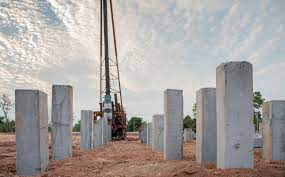
KB9. selection and use of rigging gears in piling tripods and their maintenance
during and post completion of work
KB10. checks to be carried out at different rigging gears to ascertain their usability
KB11.brief about agreed work plan and logistic plan
KB12.standard procedure of excavation and checks to be carried out to ensure the
acceptability of the same
KB13. capacity and types of pups used for piling works
KB14. correct method of setting up pumps and its accessories as per work plan
KB15.basic checks to be carried out to pumps detect faults/ cause of
malfunctioning and their repairing
KB16.specification of pumps to be used for fluid discharge required for piling
operation
KB17.electrical connection required for pumps and electrical safety norms to be
followed during working with pumps
KB18. calculation related to arithmetic, geometry and their applications in work
Skills (S)
A. Core Skills/
Generic Skills
Writing Skills
The user/ individual on the job needs to know and understand how to:
SA1. write in one or more language, preferably in the local language of the site and basic English
SA2. provide clear and simple instructions, details & sketches to sub‐ordinate
Reading Skills
The user/ individual on the job needs to know and understand how to:
SA3. read one or more language, preferably in the local language of the site and
basic English
SA4. read sketches, drawing or instructions provided for the rigging work
SA5. read various, sign boards, safety rules and safety tags , instructions related
to exit routes during emergency at the workplace
Oral Communication (Listening and Speaking skills)
The user/ individual on the job needs to know and understand how to:
SA6. speak one or more language, preferably the local language at the site
SA7. orally and effectively communicate about sketches, drawing or instructions
provided for the rigging work
SA8. speak and convey about various, sign boards, safety rules and safety tags
instructions related to exit routes during emergency at the workplace
B. Professional Skills
Decision Making
The user/individual on the job needs to know and understand how to:
SB1. decide whether the work place is safe for working and also relevant task is
not creating hazardous condition for others
SB2. decide on manpower, tools , material and equipment for relevant work
SB3. decide whether the winch machine components are suitable for use
Plan and Organize
The user/individual on the job needs to know and understand how to:
SB4. plan work & organize required resource in coordination with team members
and superior
Customer centricity
The user/individual on the job needs to know and understand how to:
SB5. perform work as per agreed time schedule and quality
Problem solving
The user/individual on the job needs to know and understand how to:
SB6. resolve concerns raised by the rigging gang
SB7. resolve any conflict within the team
SB8. report to superior efficiently on arising of unsafe conditions and safety
violations related to pile boring works
Analytical Thinking
The user/individual on the job needs to know and understand how to:
SB9. correlate the sequence of rigging works with respect to other
proceeding activity of other trade
SB10. optimize resources
SB11. minimize wastages
Critical Thinking
The user/individual on the job needs to know and understand how to:
SB12. evaluate the complexity of the task and seek assistance and support
wherever required
SB13. identify violation of any safety norms which may lead to accidents
Monitor pile boring and concreting activity
Description This unit describes the skills and knowledge required to monitor pile boring and
concreting activity.
Scope The scope covers the following:
Monitor soil boring activity and carry out necessary checks
Lower reinforcement Steel Cage in to borehole using lifting equipments
Ensure proper flushing of borehole using bentonite slurry
Monitor pile concreting activity
Performance Criteria (PC) w.r.t. the Scope
Element Performance Criteria
Monitor soil boring
activity and carry
out necessary checks
To be competent, the user/individual on the job must be able to:
PC1. establish reference points at four locations (making two lines perpendicular
to each other) by wooden pegs or other suitable means in order to relocate
the co-ordinate of pile center provided by the surveyor as and when
necessary
PC2. carry out necessary linear measurements from the reference points to
ascertain the exact location of the guide casing pipe
PC3. instruct subordinates for suitable adjustments in casing pipe for proper
alignment prior to start of boring
PC4. oversee shifting and stacking of bentonite powder bags at specified location
PC5. monitor and ensure bentonite slurry preparation is as per specification
PC6. ensure smooth circulation of bentonite slurry from the tank to the borehole
as per requirement
PC7. ensure that the test samples for viscosity and pH value test of bentonite is
delivered to quality laboratory
PC8. confirm that the boring is done up to the required depth and stable soil
condition is achieved in the borehole
PC9. carry out under reaming at the base of borehole if applicable, using
specified tool of appropriate diameter according to pile diameter
PC10. select and use proper tools for cutting bulb of required diameter in the
bottom of borehole
PC11. check and ensure implementation of the applicable safety norms by
subordinates at the work location
PC12. report to seniors clearly and concisely regarding any deviation and hazards
observed during boring activity
Lower reinforcement Steel Cage in to
borehole using lifting equipment’s
PC13. check reinforcement steel cages for physical condition, diameter, spacing,
bends, cover blocks as per instructions or relevant specifications
PC14. report/ coordinate with respective authorities if deviation observed in reinforcement steel works
PC15. anchor reinforcement cages using appropriate rigging gears in order to shift them to piling location
PC16. monitor shifting of reinforcement cages by subordinates using lifting equipment
PC17. carry out lowering of reinforcement cages up to desired depth in to borehole
PC18. check proper locking of cages inside the borehole, clear cover to the
reinforcement bars prior to report for further inspections
Ensure proper flushing of borehole using bentonite slurry
PC19. check the assembly of tremie pipes for proper locking, depth level inside the
borehole and water tightness in order to ensure smooth flushing activity
PC20. check bentonite slurry visually for its homogeneity and workability prior to application
PC21. check and ensure water tightness of hoses, pipes and pumps used for flushing activity
PC22. monitor inflow and outflow of bentonite slurry during activity
PC23. ensure cleaning of muck, sludge which comes out from borehole during flushing
PC24. report to superior on completion of flushing activity and on observing any deviation for further actions
Monitor pile concreting activity
PC25. check concrete visually for its desired slump and workability during pile concreting work
PC26. ensure continuity in concreting works by coordinating with respective departments
PC27. ensure tremie pipe is sufficiently inserted in the green concrete during concreting activity
PC28. continue concreting up to specified height above the cut off level
PC29. ensure cleaning of all material and components used for flushing and
concreting work and stack them appropriately at specified location
Knowledge and Understanding (K)
A. Organizational
Context
(Knowledge of
the company /
organization and
its processes)
The user/individual on the job needs to know and understand:
KA1. standard procedures for rigging work
KA2. safety rules and regulations for handling and storing relevant tools and
equipment and materials for rigging works
KA3. personal protection including the use of the related safety gears and
equipment
KA4. precautions and measures required in the lifting and movement of heavy
components and materials
KA5. service request procedures for tools, materials and equipment’s
KA6. statutory compliance requirements related to working at height
B. Technical Knowledge
The user/individual on the job needs to know and understand:
KB1. basic sketches / schematic working drawing relevant to rigging works
KB2. basic principles of measurement, geometry and arithmetic calculation
KB3. linear, areal and cubic measurements with conversion of units (length and weight)
KB4. reference points provided by surveyor and their implication in pile construction
KB5. diameter of the casing pipe to be used depending upon that of pile
KB6. function of casing pipe in pile boring activity
KB7. how to ensure proper alignment and orientation of casing pipe by carrying out required measurements from given reference points
KB8. sequential steps involved in boring of piles
KB9. physical properties of bentonite powder and its use in piling works
KB10.application of bentonite powder in piling procedure, its sequence and
desired physical state during application
KB11. checks to be undertaken to the pumps, hoses and their accessories in order
to ensure smooth circulation of bentonite slurry
KB12. common tests which are to be undertaken for bentonite slurry and their
implications in soil stabilization/ piling work
KB13. checks to be done for stabilization of soil in borehole and completion of boring activity
KB14.basic idea of pH value and viscosity and their tests related to bentonite slurry
KB15.basic knowledge of reading construction drawings and bar bending schedules
KB16.joining tremie pipes and checking procedures to ensure water tightness
KB17.physical properties of bentonite powder and its use in piling works
KB18.treatment to bentonite powder and desired outcome
KB19.application of bentonite powder in piling procedure, its sequence and
desired physical state during application
KB20.pumping and discharge pressure of bentonite slurry in to the borehole for flushing
KB21. checks to be done for stabilization and cleaning of borehole and completion of flushing activity
KB22.basic idea of pH value and viscosity and their tests related to bentonite slurry
KB23.required slump of concrete to be used for concrete as per agreed work plan
KB24.quality measures to be taken if concreting process gets interrupted
KB25.dos and don’ts to achieve desired slump and workability of concrete
KB26.technique of pile concreting work such as vertical oscillation of tremie pipes
and concrete feeding hopper during concreting work and its importance, rate of concrete pouring, final level of RCC to be kept above cut off level
Skills (S)
A. Core Skills/
Generic Skills
Writing Skills
The user/ individual on the job needs to know and understand how to:
SA1. write in one or more language, preferably in the local language of the site and basic English
SA2. provide clear and simple instructions, details & sketches to sub‐ordinate
Reading Skills
The user/ individual on the job needs to know and understand how to:
SA3. read one or more language, preferably in the local language of the site and basic English
SA4. read sketches, drawing or instructions provided for the rigging work
SA5. read various, sign boards, safety rules and safety tags , instructions related
to exit routes during emergency at the workplace
Oral Communication (Listening and Speaking skills)
The user/ individual on the job needs to know and understand how to:
SA6. speak one or more language, preferably the local language at the site
SA7. orally and effectively communicate about sketches, drawing or instructions
provided for the rigging work
SA8. speak and convey about various, sign boards, safety rules and safety tags
instructions related to exit routes during emergency at the workplace
B. Professional
Skills
Decision Making
The user/individual on the job needs to know and understand how to:
SB1. decide whether the work place is safe for working and also relevant task is
not creating hazardous condition for others
SB2. decide on manpower, tools , material and equipment for relevant work
SB3. decide the test to be taken to bentonite slurry for proper flushing
SB4. decide the quality measures to be taken to ensure desired pile concreting activity
Plan and Organize
The user/individual on the job needs to know and understand how to:
SB5. plan work & organize required resource in coordination with team members and superior
Customer centricity
The user/individual on the job needs to know and understand how to:
SB6. perform work as per agreed time schedule and quality
Problem solving
The user/individual on the job needs to know and understand how to:
SB7. resolve concerns raised by the rigging gang
SB8. resolve any conflict within the team
SB9. report to superior efficiently on arising of unsafe conditions and safety
violations related to pile concreting works
Analytical Thinking
The user/individual on the job needs to know and understand how to:
SB10. correlate the sequence of rigging works with respect to other
proceeding activity of other trade
SB11. optimize resources
SB12. minimize wastages
Critical Thinking
The user/individual on the job needs to know and understand how to:
SB13. evaluate the complexity of the task and seek assistance and support
wherever required
SB14. identify violation of any safety norms which may lead to accidents
Work effectively in a team to deliver desired results at the workplace
Description This unit describes the skills and knowledge required to work effectively within a
team to achieve the desired results.
Scope The scope covers the following:
Interact and communicate effectively with co-workers, superiors and subordinates across different teams
Support co-workers, superiors and sub-ordinates within the team and across
interfacing teams to ensure effective execution of assigned task
Performance Criteria (PC) w.r.t. the Scope
Element Performance Criteria
Interact and communicate in effective and conclusive manner
To be competent, the user / individual on the job must be able to:
PC1. pass on work related information/ requirement clearly to the team members
PC2. inform co-workers and superiors about any kind of deviations from work
PC3. address the problems effectively and report if required to immediate
supervisor appropriately
PC4. receive instructions clearly from superiors and respond effectively on the same
PC5. communicate to team members/subordinates for appropriate work technique and method
PC6. seek clarification and advice as per the requirement and applicability
Support co-workers to execute project requirements
PC7. hand over the required material, tools tackles, equipment and work fronts
timely to interfacing teams
PC8. work together with co-workers in a synchronized manner
Knowledge and Understanding (K)
A. Organizational
Context
(Knowledge of
the company /
organization and
its processes)
The user/individual on the job needs to know and understand:
KA1. own roles and responsibilities
KA2. importance of effective communication and establishing strong working
relationships with co-workers
KA3. risks of a failure in teamwork in terms of effects on project outcomes,
timelines, safety at the construction site, etc.
KA4. different modes of communication, and its appropriate usage
KA5. importance of creating healthy and cooperative work environment among
the gangs of workers
B. Technical Knowledge
The user/individual on the job needs to know and understand:
KB1. different activities within his work area where an interaction with other
workers is required
KB2. applicable techniques of work, properties of materials used, tools and tackles
used, safety standards that co- workers might need as per the requirement
KB3. importance of proper and effective communication and the expected adverse
effects in case of failure relating to quality, timelines, safety, risks at the
construction project site
KB4. importance and need of supporting co-workers facing problems for smooth functioning of work
Skills (S)
A. Core Skills/
Generic Skills
Writing Skills
The user/ individual on the job needs to know and understand how to:
SA1. write in one or more languages, preferably in the local language of the site
Reading Skills
The user/ individual on the job needs to know and understand how to:
SA2. read in one or more languages, preferably in the local language of the site
SA3. read communication from team members regarding work completed,
materials used, tools and tackles used, support required
Oral Communication (Listening and Speaking skills)
The user/ individual on the job needs to know and understand how to:
SA4. speak in one or more languages, preferably in one of the local languages of the site
SA5. listen and follow instructions / communication shared by superiors/ co-
workers regarding team requirements or interfaces during work processes
SA6. orally communicate with co-workers regarding support required to complete
the respective work
B. Professional Skills
Decision Making
The user/individual on the job needs to know and understand how to:
SB1. decide on what information is to be shared with co-workers within the team
or from interfacing gang of workers
Plan and Organize
The user/individual on the job needs to know and understand how to:
SB2. plan work and organize required resources in coordination with team
members
Customer centricity
The user/individual on the job needs to know and understand how to:
SB3. complete all assigned task in coordination with team members
Problem solving
The user/individual on the job needs to know and understand how to:
SB4. take initiative in resolving issues among co-workers or report the same to superiors
Analytical Thinking
The user/individual on the job needs to know and understand how to:
SB5. ensure best ways of coordination among team members
SB6. communicate with co-workers considering their educational / social
background
Critical Thinking
The user/individual on the job needs to know and understand how to:
SB7. evaluate the complexity of task and determine if any guidance is required
from superiors
Plan and organize work to meet expected outcomes
Description This unit describes the knowledge and the skills required for an individual to plan and
organize own work in order to meet expected outcome.
Scope This scope covers the following:
Prioritize work activities to achieve desired results
Organize desired resources prior to commencement of work
Performance Criteria (PC) w.r.t. the Scope
Element Performance Criteria Prioritize work activities to achieve desired results
To be competent, the user / individual on the job must be able to:
PC1. understand clearly the targets and timelines set by superiors
PC2. plan activities as per schedule and sequence
PC3. provide guidance to the subordinates to obtain desired outcome
PC4. plan housekeeping activities prior to and post completion of work
Organize desired resources prior to commencement of work
PC5. list and arrange required resources prior to commencement of work
PC6. select and employ correct tools, tackles and equipment for completion of desired work
PC7. complete the work with allocated resources
PC8. engage allocated manpower in an appropriate manner
PC9. use resources in an optimum manner to avoid any unnecessary wastage
PC10. employ tools, tackles and equipment with care to avoid damage to the same
PC11. organize work output, materials used, tools and tackles deployed,
PC12. processes adopted to be in line with the specified standards and instructions
Knowledge and Understanding (K)
A. Organizational Context (Knowledge of the company / organization and its processes)
The user/individual on the job needs to know and understand:
KA1. importance of proper housekeeping
KA2. policies, procedures and work targets set by superiors
KA3. roles and responsibilities in executing the work for subordinates and self
B. Technical Knowledge
The user/individual on the job needs to know and understand:
KB1. standard practices of work to be adopted for assigned task
KB2. how to use available resources in a judicious and appropriate manner to
minimize wastages or damage
Skills (S)
A. Core Skills/
Generic Skills
Writing Skills
The user/ individual on the job needs to know and understand how to:
SA1. write in one or more language, preferably in the local language of the site
SA1. list out the assigned works and targets
Reading Skills
The user/ individual on the job needs to know and understand how to:
SA2. read in one or more language, preferably in the local language of the site
SA3. read communication from co-workers, superiors and notices from other
departments as per requirement of the level
Oral Communication (Listening and Speaking skills)
The user/ individual on the job needs to know and understand how to:
SA4. speak in one or more language, preferably in one of the local language of the
site
SA5. listen and follow communication shared by co-workers regarding standard
work processes, resources available, timelines, etc.
SA6. communicate effectively with co-workers and subordinates
B. Professional
Skills
Decision Making
The user/individual on the job needs to know and understand how to:
SB1. decide on what sequence is to be adopted for execution of work
Plan and Organize
The user/individual on the job needs to know and understand how to:
SB2. plan and organize the materials, tools, tackles and equipment required to
execute the work
Customer centricity
The user/individual on the job needs to know and understand how to:
SB3. complete all assigned task with proper planning and organizing
Problem solving
The user/individual on the job needs to know and understand how to:
SB4. arrange or seek help to arrange for material, tools and tackles in case of
shortfall
Analytical Thinking
The user/individual on the job needs to know and understand how to:
SB5. analyze areas of work which could result in a delay of work, wastage of
material or damage to tools and tackles
Critical Thinking
The user/individual on the job needs to know and understand how to:
SB6. evaluate potential solutions to minimize avoidable delays and wastages at
the construction site
Work according to personal health, safety and environment protocol at construction site
Description This NOS covers the skill and knowledge required for an individual to work according
to personal health, safety and environmental protocol at construction site
Scope The scope covers the following:
Follow safety norms as defined by organization
Adopt healthy & safe work practices
Implement good housekeeping and environment protection process and activities
Performance Criteria (PC) w.r.t. the Scope
Element Performance Criteria
Follow safety norms as defined by organization
To be competent, the user / individual on the job must be able to:
PC1. identify and report any hazards, risks or breaches in site safety to the
appropriate authority
PC2. follow emergency and evacuation procedures in case of accidents, fires, natural calamities
PC3. follow recommended safe practices in handling construction materials,
including chemical and hazardous material whenever applicable
PC4. participate in safety awareness programs like Tool Box Talks, safety
demonstrations, mock drills, conducted at site
PC5. identify near miss , unsafe condition and unsafe act
Adopt healthy & safe work practices
PC6. use appropriate Personal Protective Equipment (PPE) as per work
requirements including:
Head Protection (Helmets)
Ear protection
Fall Protection
Foot Protection
Face and Eye Protection,
Hand and Body Protection
Respiratory Protection (if required)
PC7. handle all required tools, tackles , materials & equipment safely
PC8. follow safe disposal of waste, harmful and hazardous materials as per EHS guidelines
PC9. install and apply properly all safety equipment as instructed
PC10. follow safety protocol and practices as laid down by site EHS department
Implement good housekeeping practices
PC11. collect and deposit construction waste into identified containers before
disposal, separate containers that may be needed for disposal of toxic or hazardous wastes
PC12. apply ergonomic principles wherever required
Knowledge and Understanding (K)
A. Organizational Context (Knowledge of the company / organization and its processes)
The user/individual on the job needs to know and understand:
KA1. reporting procedures in cases of breaches or hazards for site safety, accidents,
and emergency situations as per guidelines
KA2. types of safety hazards at construction sites
KA3. basic ergonomic principles as per applicability
B. Technical Knowledge
The user/individual on the job needs to know and understand:
KB1. the procedure for responding to accidents and other emergencies at site
KB2. appropriate personal protective equipment to used based on various working conditions
KB3. importance of handling tools, equipment and materials as per applicable
KB4. health and environments effect of construction materials as per applicability
KB5. various environmental protection methods as per applicability
KB6. storage of waste including the following at appropriate location:
non-combustible scrap material and debris
combustible scrap material and debris
general construction waste and trash (non-toxic, non-hazardous)
any other hazardous wastes
any other flammable wastes
KB7. how to use hazardous material, in a safe and appropriate manner as per applicability
KB8. safety relevant to tools, tackles, & requirement as per applicability
KB9. housekeeping activities relevant to task
Skills (S)
A. Core Skills/
Generic Skills
Writing Skills
The user/ individual on the job needs to know and understand how to:
SA2. write in one or more language, preferably in the local language of the site
SA3. fill safety formats for near miss, unsafe conditions and safety suggestions
Reading Skills
The user/ individual on the job needs to know and understand how to:
SA4. read in one or more language, preferably in the local language of the site
SA5. read sign boards, notice boards relevant to safety
Oral Communication (Listening and Speaking skills)
The user/ individual on the job needs to know and understand how to:
SA6. speak in one or more language, preferably in one of the local language of the site
SA7. listen instructions / communication shared by site EHS and superiors
regarding site safety, and conducting tool box talk
SA8. communicate reporting of site conditions, hazards, accidents, etc.
B. Professional Skills
Decision Making
The user/individual on the job needs to know and understand how to:
SB1. not create unsafe conditions for others
SB2. keep the workplace clean and tidy
Plan and Organise
SB3. N.A
Customer centricity
SB4. N.A
Problem solving
The user/individual on the job needs to know and understand how to:
SB5. identify safety risks that affect the health, safety and environment for self and
others working in the vicinity, tackle it if within limit or report to appropriate
authority
Analytical Thinking
The user/individual on the job needs to know and understand how to:
SB6. assess and analyze areas which may affect health, safety and environment
protocol on the site
Critical Thinking
The user/individual on the job needs to know and understand how to:
SB7. ensure personal safety behavior
SB8. respond to emergency
